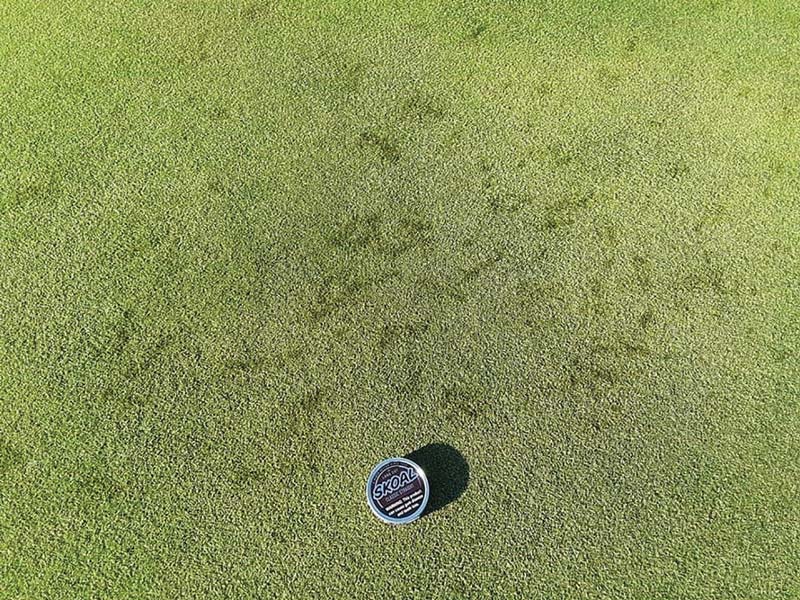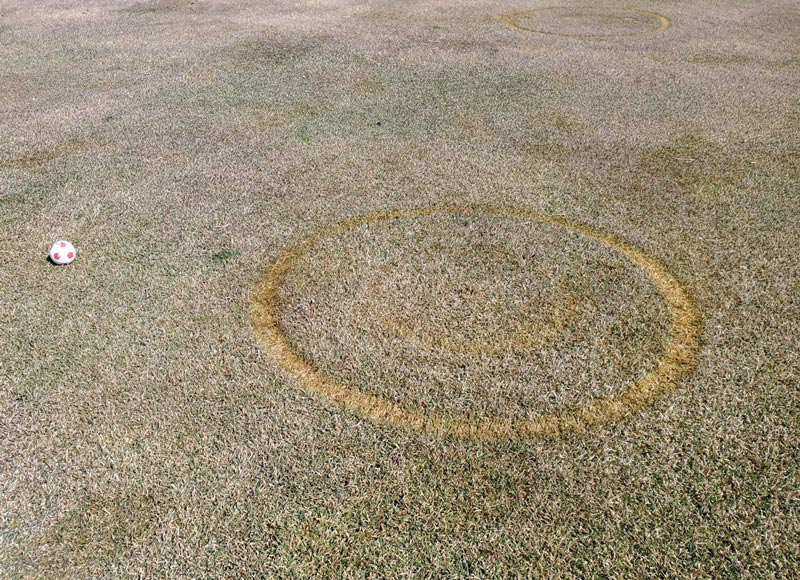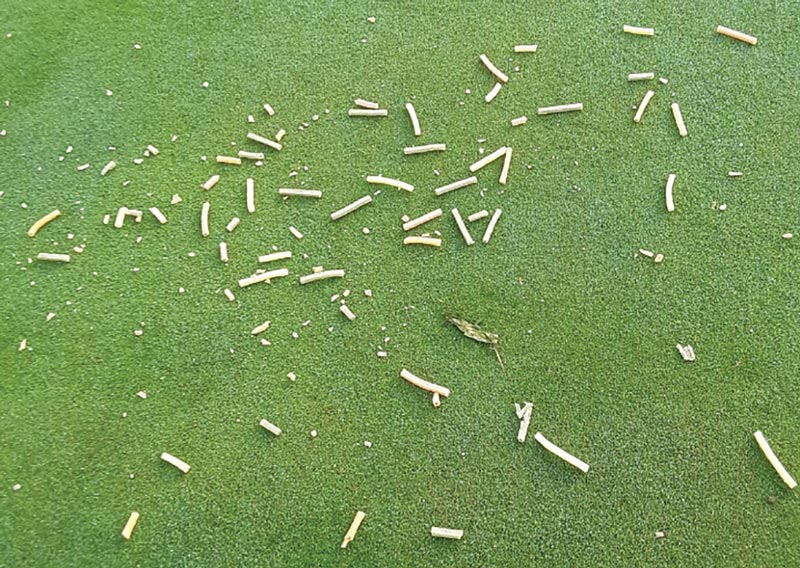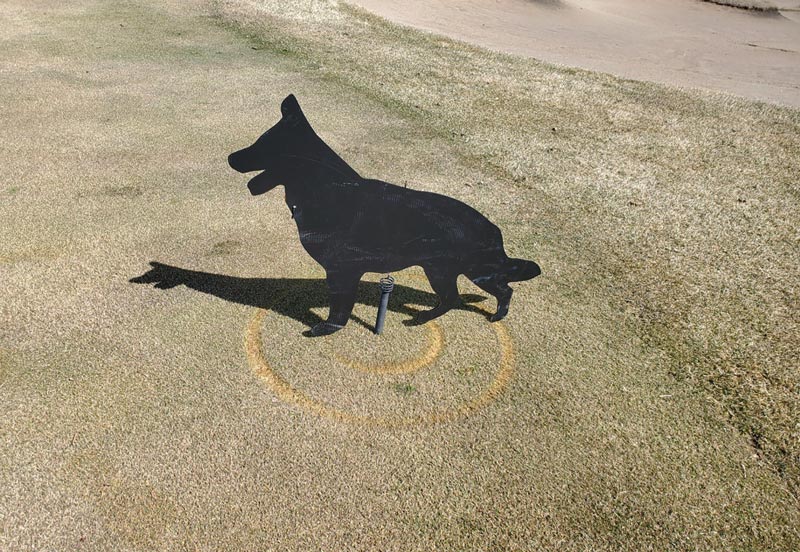GCM’s Photo Quiz is presented in partnership with STEC Equipment.

Problem A: Numerous thin, black, oily lines

Location: Wilmington, Vt.
Turfgrass area: Putting green
Turfgrass variety: Penncross bentgrass
Problem B: Worn double circle on turf emerging out of winter dormancy

Location: Prior Lake, Minn.
Turfgrass area: Fairway
Turfgrass variety: Penncross bentgrass
Scroll down for answers.
Problem A: Numerous thin, black, oily lines
The cause of these lines, about 3 to 4 inches in length, wasn’t a mystery to the superintendent — the culprit was a snack called Veggie Fries. How they got on the green wasn’t a mystery either, as some college kids staying in a nearby condo had been removed from the course earlier the same day for poor behavior and bringing their own alcohol, and apparently the group revisited the course that evening.

Veggie Fries are made from a mix of potatoes, cauliflower and chickpeas, which is then fried in expeller-pressed canola oil. The theory is that the dew deflated the puffed snack after it had been left on the green, and the canola oil damaged the turf. There were also numerous divots on the green, and, to top it all off, the flag had been jabbed into the green.
After the damage was discovered, police were called. The culprits were found outside a nearby condo, and although no charges were filed, they were given a stern warning about trespassing and were told not to return to the golf course. As for the snack-created damage, the crew blew the residue off the green and watered heavily with Dawn dish soap out of a sprayer with a 1-inch hose. The damage grew out after about seven to 10 days.
Photo submitted by Roberto Diaz, the golf course superintendent at Haystack Golf Course in Wilmington, Vt.
Problem B: Worn double circle on turf emerging out of winter dormancy
When I saw this photo, I assumed it was a target that had been painted on the turf in the fall that perhaps didn’t overwinter as well as the surrounding Penncross bentgrass. But that wasn’t the case.
On this golf course, as the snow melts, steps are taken to deter geese, and for the past two years, the course has used five dog decoys (pictured below) for that purpose. They were deployed two weeks earlier than usual this past winter because of an early snowmelt, and they get moved from area to area on some of the birds’ most frequented holes. As the wind spins the decoys around, they snap back into position with the aid of a central spring.

Spotting these circular wear patterns after the decoys had been removed was a bit of a surprise. The fairway turf grew out fine after the bentgrass fully “woke up” from dormancy. The efficacy of the decoys is still to be determined, as it seems they may keep new geese from arriving, but the geese that already call the course home sometimes still outsmart the “dogs.”
Photo submitted by Joe Berggren, the GCSAA Class A superintendent at The Wilds Golf Club in Prior Lake, Minn., and an 11-year GCSAA member.
Editor’s note: Have a photo of an on-course anomaly? GCM would love to have a look! Email it to Photo Quiz author John Mascaro.
John Mascaro is the president of Turf-Tec International.